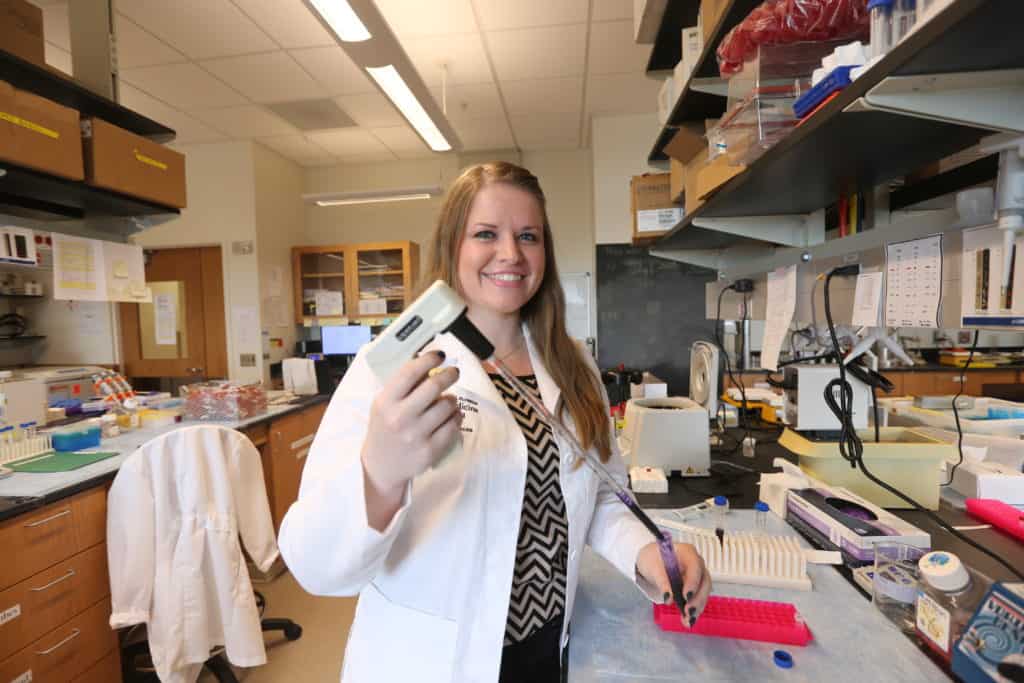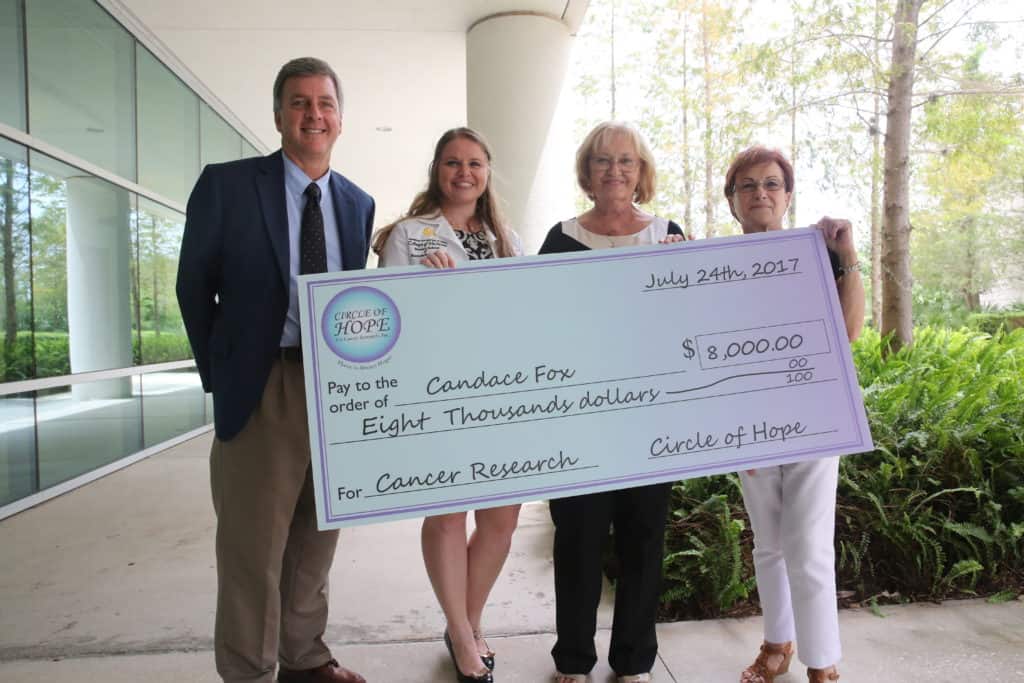
Four years ago, Candace Fox watched her grandfather die of aggressive lung cancer, and at that moment, she committed herself to finding a cure.
Today the 24 year-old Ph.D. student at the UCF College of Medicine, is doing just that. She is genetically altering a parainfluenza virus that usually causes respiratory infections to selectively attack cancer cells. In the lab at the Burnett School of Biomedical Sciences building in Lake Nona, the virus kills many cancer cells and makes those that survive more vulnerable to chemotherapy drugs.
Her research recently received an $8,000 grant from Circle of Hope for Cancer Research, a nonprofit group based in Central Florida. Its founders, Joan Tashbar and Rosa Holloway, are two lung cancer survivors who donate 100 percent of the funds they raise through 5K runs and golf tournaments to medical students doing cancer research.
“Joan and I battled Stage 3 lung cancer and after we became cancer-free we tried to find a way to give back and started raising money for cancer research,” Holloway said.
She said Fox’s was one of the most promising applications for research funding they had received this year.
“We have to look at all avenues to find a cure for cancer and hers was among the top two of the close to 20 applications we received,” Hollaway said. “It is a unique project that, if successful, could make a big impact for cancer treatment.”
The virus is programmed to selectively infect cancer cells without harming healthy ones. That’s a dramatic improvement over traditional cancer therapies like chemotherapy that harm all cells, leading to serious side effects. In addition, once the virus is administered, it activates the body’s immune system, causing it to attack the cancer cells as well. As Fox explained, “This combination therapy will allow us to use a lower dose of chemotherapy drugs, reducing the side effects for the patient.”
The UCF graduate student is working with Dr. Griffith Parks, director of the Burnett School, who is a virus specialist. While viruses have traditionally been seen as a danger to health, using viruses to selectively kill malignant cells is one of the newest trends in cancer research.
So far, the UCF team has tested the virus therapy on lung, breast, prostate and ovarian cancer cells isolated from patients’ tumors. Breast, prostate and ovarian cancer cells infected with the modified virus, then chemotherapy, showed an improvement in cell death. Lung cancer cells were completely destroyed. The next step will be using animal models to test the effectiveness of the treatment, and then human clinical trials. The Circle of Hope grant will help with that testing.
“Cancer is so prevalent and aggressive and some tumors have the ability to become resistant to chemotherapy drugs,” Fox said of her work. “So we do need to find better, more potent treatments.”



